 Movies and TV
Movies and TV  Movies and TV
Movies and TV  Humans
Humans 10 Times Scientists Were Absolutely Sure… and Absolutely Wrong
 Our World
Our World 10 Pivotal Moments for Life on Earth
 Movies and TV
Movies and TV 10 Most Realistic Medical TV Shows of All Time
 Creepy
Creepy 10 Eerie & Mysterious Ghosts of the Pacific Coast
 Weird Stuff
Weird Stuff 10 Typos That Accidentally Changed History
 History
History 10 Times Trickery Won Battles
 Technology
Technology 10 Awesome Upgrades to Common Household Items
 Misconceptions
Misconceptions 10 Hilarious (and Totally Wrong) Misconceptions About Childbirth
 Weird Stuff
Weird Stuff 10 Warning Labels That Exist Because Someone Actually Tried It
 Movies and TV
Movies and TV 10 Zombie Movies That Will Actually Terrify You
 Humans
Humans 10 Times Scientists Were Absolutely Sure… and Absolutely Wrong
 Our World
Our World 10 Pivotal Moments for Life on Earth
Who's Behind Listverse?

Jamie Frater
Head Editor
Jamie founded Listverse due to an insatiable desire to share fascinating, obscure, and bizarre facts. He has been a guest speaker on numerous national radio and television stations and is a five time published author.
More About Us Movies and TV
Movies and TV 10 Most Realistic Medical TV Shows of All Time
 Creepy
Creepy 10 Eerie & Mysterious Ghosts of the Pacific Coast
 Weird Stuff
Weird Stuff 10 Typos That Accidentally Changed History
 History
History 10 Times Trickery Won Battles
 Technology
Technology 10 Awesome Upgrades to Common Household Items
 Misconceptions
Misconceptions 10 Hilarious (and Totally Wrong) Misconceptions About Childbirth
 Weird Stuff
Weird Stuff 10 Warning Labels That Exist Because Someone Actually Tried It
10 Non-Peaceful Ways We Keep The Peace
Humans have always been a violent species, and yet we have the capacity for rationality. Rationality informs us that it is best, where we can, to avoid war. If it were as easy as that, however, we’d all be living in Eden right about now.
Instead we rely on military deterrents to keep the peace – working on the premise that other nations will withhold from entering a state of war if it seems too costly. The following list explores ten such deterrents, most of which involve the use of weapons of mass destruction.
It should also be noted as an aside that this list can be dissected into two distinct sections: the first half concerns general strategies employed by numerous nations worldwide at some point or another, while the latter half consists entirely of nation specific deterrents – some of which continue to be used to this day.
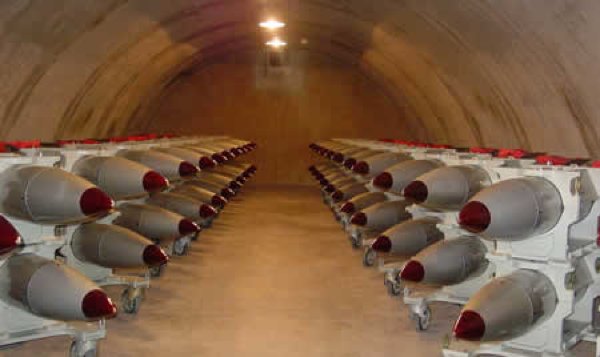
Stockpiling is the age old military technique which took on a completely new and rather ineffective life after the birth of the bomb. During the Cold War, both the Soviet Union and the United States continued to stockpile nuclear weapons – despite having enough to destroy the world many times over. It then stopped being about ‘who could cause the most harm’, and devolved into a game of brinksmanship with the whole world at stake.
Due to technological advancements, stockpiling rarely occurs on a large scale today – the outcomes of war theoretically being more determined by technological superiority than amassed material wealth.

Despite treaties such as the Geneva Protocol and the Biological Weapons Convention, it is still believed that many signatory nations possess some form of bio-weaponry ready to be deployed if necessary.
Of course, using any form of bio-weaponry during conventional warfare is suicide – if only because it would incur the swift wrath of more ‘moral’ nations – but this is not to say that they wouldn’t be used in desperation. What makes biological weaponry particularly interesting, however, is that its sole purpose is to destroy.
Agents such as weaponized influenza serve as a significant deterrent against war, for they declare to potential enemies that “I’d rather we both suffer, than see you succeed”.

This one is fairly simple: threaten your foes with economic collapse, should they decide to attack. Many economic powerhouses could employ such a tactic, in times of emergency.
The most notable candidate for this deterrent is China. If war broke out with Western nations, China could simply recall the trillions owed in debt, and block exports to send Western economies into free-fall overnight. Any country which has some form of economic dependence upon another nation will think twice before committing to a war, lest they risk economic ruin.
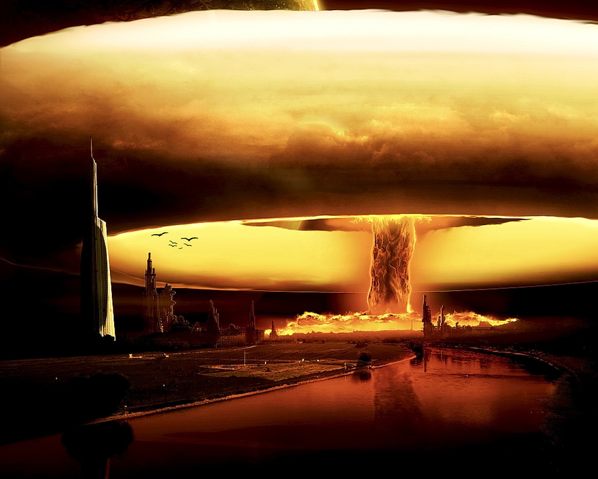
If you’ve ever played a real-time military strategy game and spent time constructing an impressive military force to completely overwhelm your foes in revenge, you know exactly what massive retaliation is: the doctrine that argues for a disproportionately extensive use of force when counter-attacking to utterly vanquish those that oppose you.
The doctrine formed a large part of the US and Soviet brinksmanship foreign policy during the Cold War. The threat of massive retaliation attempts to dissuade a nation from provoking another. The understandable fear of massive retaliation, and the wish to be able to enact such against foes, indirectly provides the fuel for arms races, where combatants try in vain to gather the strength necessary to be victorious.
If there are hundreds or thousands of thermonuclear weapons bearing down upon your home nation, what purpose would be served by destroying the attacker’s military? It certainly wouldn’t help you by that point – so why not just cast as many enemy souls as possible down with you into oblivion?
This is what many nuclear countries advocate, alongside a no-first-strike policy. Counter-value refers to targets which are deemed to have no strategic or tactical military value, such as cities and other population centers. Rather unique, the deterrent works by forcing civilian populations, whose lives are in jeopardy, to put pressure on their governments to not engage in a first-strike nuclear policy.
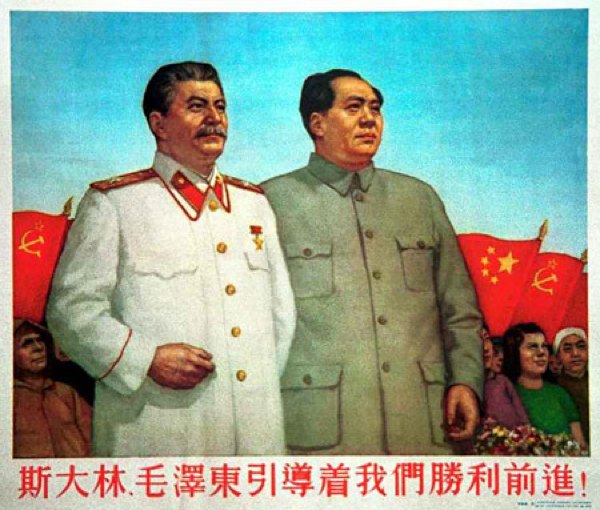
During periods of the Cold War, both the Soviets and Chinese positioned thousands of ICBMs along their mutual border. Although the countries were not exactly allies, they both understood the potential for nuclear war and decided to come to each other’s aid. The idea was to deter US provocations. How so?
Well, if ICBMs were launched so close to the border, it would have been extremely difficult at the time to interpret whether they had come from the Soviet Union or from China. This is of course extremely problematic when trying to determine where to initiate a second strike – you run the risk of provoking and drawing another nation into the chaos, as well as wasting vital armaments, which only decreases your already infinitesimal chances of survival.
As the only deterrent on this list designed to deter provocation and second strike policies, the concept of location ambiguity may have, in a round-about way, reduced the level of brinksmanship that occurred during the Cold w\War.
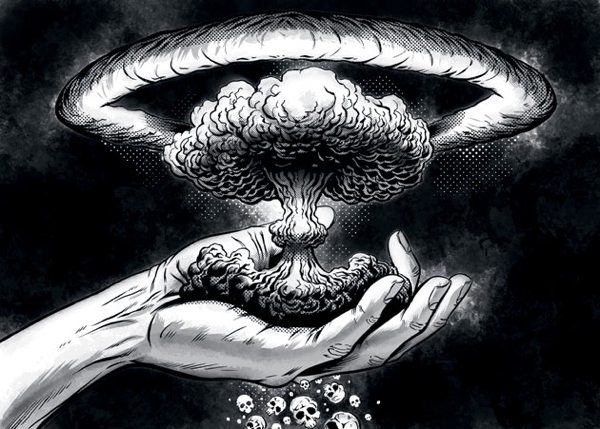
Designed by the Soviet Union in the early 1980s, Dead Hand (also known as Perimeter) is a deadly mechanism employed to automatically launch ICBM stockpiles if it detects signs of a nuclear strike. Acting independently of the nation’s leadership, Dead Hand allows the enactment of a second strike policy, and also strongly deters tactical first strikes.
Somewhat worryingly, Dead Hand is still believed to be active – and with the possibility of rogue nuclear weapons falling into the hands of terrorists rising daily, it is growing more and more feasible that it could be set off in the future by ‘accident’ – subsequently launching thousands of nuclear weapons towards so-far-unspecified targets.

As soon as a British prime minister is sworn into office, one of the first objectives on his agenda is to handwrite four identical letters, one of which is to be kept locked away onboard every Vanguard-class nuclear submarine in the British Navy. The content of the letters? No one knows for sure – they are destroyed, unopened, at the end of the author’s term in office.
What we do know, however, is that the letters contain orders that will be followed by the commanding officer of each submarine in the event that the United Kingdom, and its leaders, are annihilated as the result of nuclear war. The mysterious nature of these letters make them a powerful deterrent indeed. Contained therein could literally be anything from “Lay down your arms and make peace” to “Fire all ICBMs”. Anyone contemplating a first strike on the British would therefore know that they are playing dice with death – dice which are weighted heavily in favor of revenge.

If you were on the brink of nuclear war, what would be the last thing you’d do? How about going around telling everybody that you’d be prepared to unleash hell on nothing more than a whim?
That’s exactly what US President Richard Nixon did during the autumn of 1969. After setting the military alert to DEFCON 2, putting the entire US military on full readiness for global war, and ordering thermonuclear bombers to fly close to the Soviet border (Operation Giant Lance), the Nixon administration informed the Soviet government that “the madman was loose”, and that his finger was on the trigger.
The bold posture was intended to demonstrate that the Nixon administration would mercilessly and unpredictably pursue any means, including a first strike nuclear policy, in order to achieve their goals. What exactly were they trying to achieve? Nothing more then to scare the North Vietnamese government into surrender. Unfortunately for Nixon, he failed to take into account that the North Vietnamese were also willing to undertake all means necessary to succeed in their campaign.
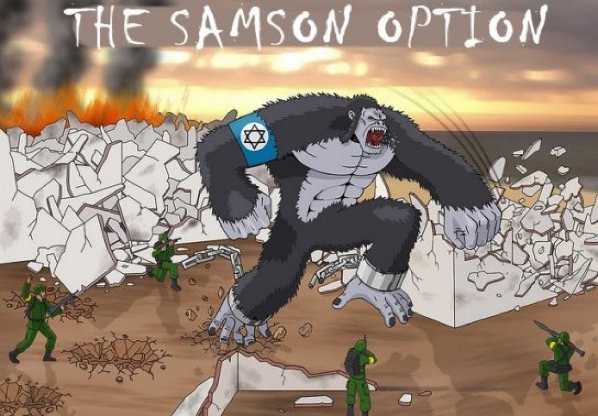
Since its formation after the Second World War, Israel has existed almost permanently under the threat of destruction by its Islamic neighbors. It doesn’t surprise us, then, when we hear the war cries that gush from the mouths of its leaders daily.
More surprising, however, are the extreme threats Israel has indirectly made towards the rest of the world. It is claimed by leading military theorists, based upon the convincing evidence presented to them, that if Israel is either destroyed or on the brink of destruction, it may initiate the ‘Samson Option’.
This would see the world swiftly brought to its knees by a cataclysmic nuclear campaign committed on behalf of the smitten Israeli people by autonomous military units, which would continue to operate after the fall of Israel. Not only would Middle Eastern targets such as Mecca feel the metaphorical ‘Wrath of God’ – European and American cities and establishments, too, would be given a slice of pain. The idea behind such madness is to coerce international parties into defending Israel.








